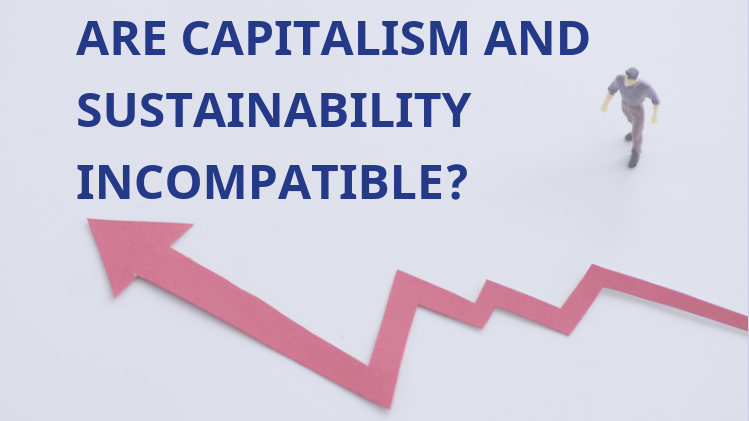Long held as the key indicator for a country's growth, the drive for positive Gross Domestic Product (GDP) is increasingly being attacked by economists as a flawed measure that doesn't account for climate change.
04:53

GDP is the sum of the market value of everything a country produces, from nuclear warheads to vegan sausage rolls, over a specific time period. The figures are customarily released annually and, when positive, hailed by governments as an indicator of growth.
It relies on new markets and resources being exploited, making no distinction between the sustainable and perishable, the polluting and the purifying, between products that are detrimental to our environment and those that are not.
As well as being notoriously hard to quantify, figures are often recalculated decades after the fact. In regard to climate change, GDP has no answers. Rather, there is a "coupling" between rising carbon dioxide emissions and real GDP per head, as shown by figures gathered in a report for the UK's Office for National Statistics (ONS).
The report noted that "any potential global decoupling" can only be achieved through "technological change or environmental policies."
How should we measure growth?
Dustin Benton, of the Green Alliance think tank, believes that, while GDP is useful, it should work in conjunction with other economic measures.
"If you buy a building that's made from cross-laminated timber instead of steel and concrete, you can cut the whole life carbon emission of that building by 80 percent. GDP doesn't actually see the difference in that because the buildings actually cost the same."
For Benton, the path forward is clear: "We do need to change our lifestyles, but that doesn't mean we need to live bad-quality and unhappy lives – in fact, that's what happens if we just pay attention to GDP and allow climate breakdown to continue. Instead, we need to look differently at how we can live a good life and measure progress towards that good life by measures alternative to GDP."
Sarkozy and Stiglitz team up
Policymakers are now more receptive to alternatives to GDP, partly thanks to the Nobel prize-winning economist, Joseph Stiglitz. In 2008, Stiglitz was among a team of economists tasked by the then French president Nicolas Sarkozy, to identify the limits of GDP. The Stiglitz-Sen-Fitoussi Commission, as it was labeled in the press, outlined new metrics, taking into account education, gender equality and environmental sustainability, among other elements.

The impact of the Stiglitz-Sen-Fitoussi Commission is still being felt. (Credit: AP)
The impact of the Stiglitz-Sen-Fitoussi Commission is still being felt. (Credit: AP)
The commission's recommendations are echoed by Bob Ward, of the Grantham Research Institute. Ward notes the need for a "better measure of human development," which focuses on both social and natural capital, the protection of biodiversity.
"Both in the ocean and on land – we need to protect and preserve that because they are valuable and the loss of it makes countries fundamentally and permanently poorer," says Ward.
Rather than doing away with GDP altogether, the solution may lie in its reform. Inventor of the measure, economist Simon Kuznets, was adamant the figure had no bearing on well-being. Later in life, the American attempted to rework his invention, proposing that certain products he deemed detrimental to humankind – arms, advertising, etc... – be subtracted from a country's overall GDP. Kuznets' new ideas never gained popularity.
Can change only come from growth?
Despite growing criticism, there remains a sense among mainstream economists that to forgo GDP, along with a focus on growth, is a considerable risk. Economist Vicky Pryce, a former adviser to the UK government, views growth as essential in the search for a solution to the current climate crisis.
"The big difference is technological change. It's going to cost [to find a climate solution] and if you don't have growth and enough resources and money to put it into ... you just won't achieve that.
"It's technology that will do it. And it's only a continuously growing world economy that will be able to afford the investments needed."

Kuznets tried to rework his invention, GDP, later in life. (Credit: AP)
Kuznets tried to rework his invention, GDP, later in life. (Credit: AP)
Revolutionary in 1934 when it was invented, GDP is facing an uncertain future, with many liberals and conservatives united in agreement of its limitations. Sarkozy wrote in the forward to the book inspired by the Stiglitz-Sen-Fitoussi Commission: "I hold a firm belief: We will not change our behavior unless we change the ways we measure our economic performance.”
Despite this rare consensus, a new measure that incorporates well-being, climate protection and economic prosperity has yet to emerge.